
Crazy Dense Eco-Travel Guide
Updated Monthly with new tips, tricks & tactics!
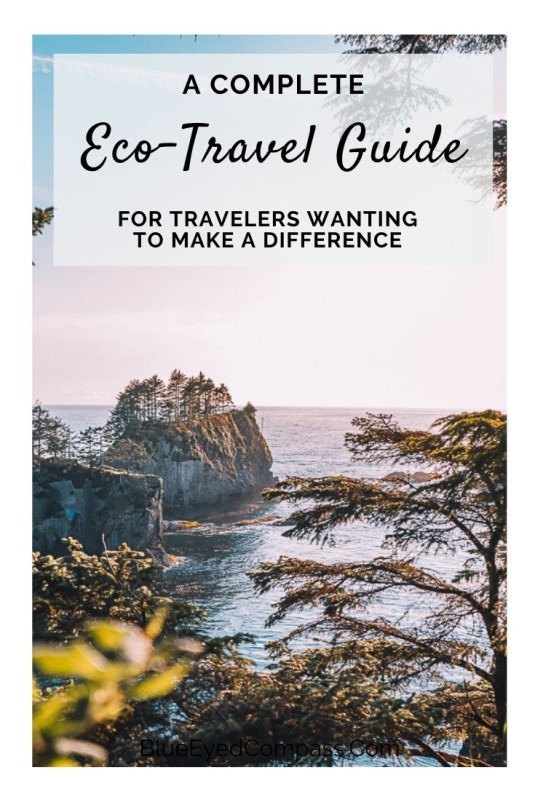
This page contains affiliate links to products and tours that I have used for my own travels, purchased & enjoyed. Clicking these links does not cost you anything, however doing so will support Blue Eyed Compass and allow the site to continue. THANK YOU!
The topic of sustainable travel and eco-friendly lifestyles are continuing to become more popular. And while many individuals have started treading down the sustainable path, we all can be doing more.
I’ve put together a guide on ALL things related to Eco-Travel and what you can start doing to become a more ‘green’ traveler. Even if you can only do a few of these, every small action counts towards the greater impact.
Being an eco-traveler is a growing movement and trust me, you want to be a part of it.
Unfortunately, the best way to often make the point across is to share negatives, like overtourism or pollution problems, so instead the aim for this crazy dense eco-travel guide is to be actionable and fun.
Included in this post:
- Description of what eco-travel means
- Best & most used sustainable travel items
- How to fly Green
- How to find & choose your eco-accommodations
What is Eco-Travel?
Eco-travel is the act of supporting eco-tourism. Meaning your travels should:
- have minimal impact on the destination
- positively impact the local community
- & encourage the education of sustainability.
It’s important to note that ‘eco’ does NOT stand for economy, but for ecological. Meaning focus your travel decisions on the environment over cost-saving benefits for yourself.
What’s the difference between eco-travel, sustainable travel & green tourism?
There are many popular terms used almost interchangeably throughout the sustainable travel world. However, when discussed side-by-side they are all slightly different from one another. I go into more about the different terms used in this post: What is Sustainable Travel?, as well as what sustainable travel is NOT.
For right now, it’s important for you to understand that eco-travel is also called eco-conscious travel.
Why is Eco-travel so important?
Each year, more and more people are traveling to new destinations. Studies say that over one BILLION people are traveling each year. Which, when you think about travel 100 years ago is an incredible feat… just not for the environment.
Now, imagine that only one million of those billion travelers came to your town throughout the year. Sounds like a great way for local businesses to thrive, right? But it also means loads of traffic for you and a lot of disregarded waste. This is where the term overtourism has come into play recently.
For each person who goes on a trip they are most likely looking to relax and unwind. That feeling of ‘not a care in the world’ has led to a lazy mindset, which leads to less thought out decisions, more waste and little regard for the impact our vacations hold.
Which is why eco-travel is so important. You can still enjoy a wonderful vacation while being an eco-traveler. In fact, you may enjoy it even more! Eco travel allows vacationers to enjoy the perks of travel, while leaving behind only a small footprint, and potentially an even greater positive impact than when they first arrived.
How does Eco-Travel Help?
Eco-travel helps with the damaging effects of one billion travelers by ensuring:
- Natural landmarks and destinations are preserved
- Pollution problems are minimalized
- And that there is little to no loss of wildlife and local culture
READ MORE: A Sustainable Travelers Carry on Kit
The Best Eco-Friendly Travel Items
What should you pack as an eco-traveler? This question alone will elicit tons of ‘gift guides’ and the ‘best items to buy’ lists, which to be honest, many of which are promoting the sale of items that are wrapped in plastic and shipped without a second thought to the environment (the thought is behind the affiliate income they’ll earn).
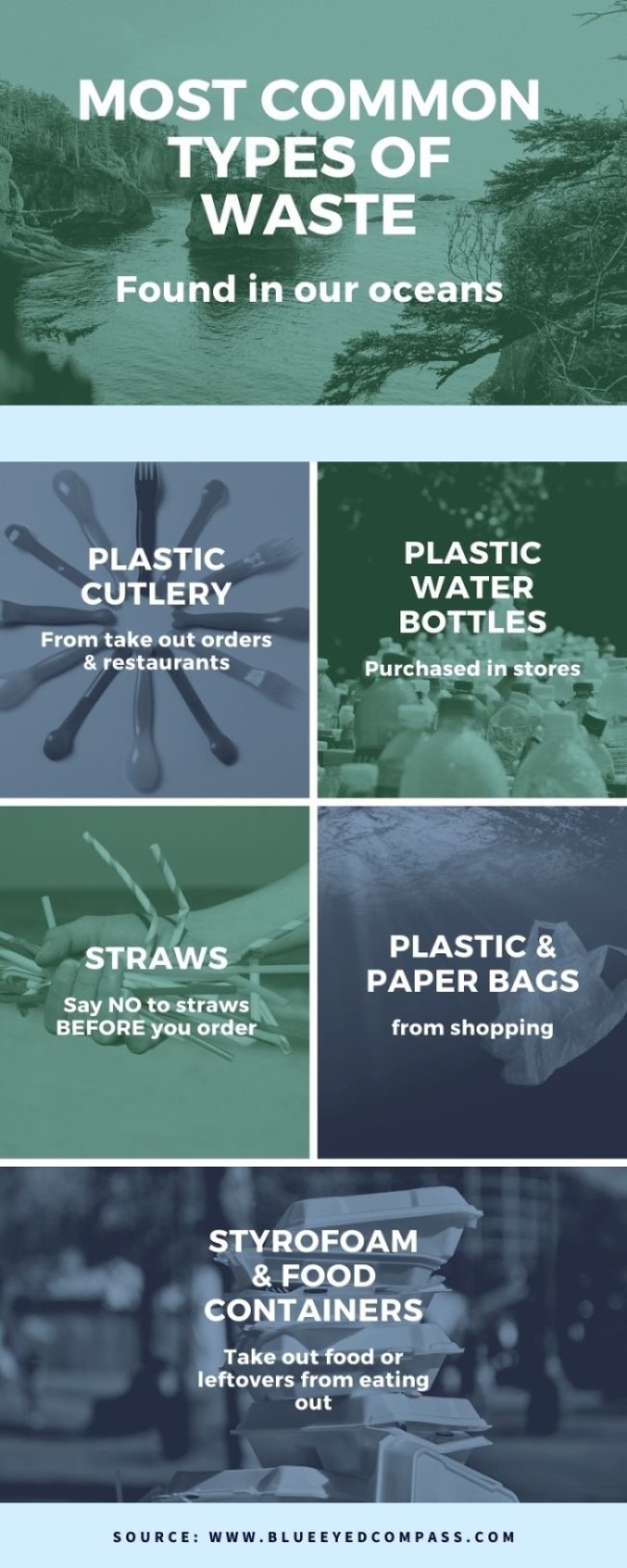

My goal for you is to not enforce greater consumerism, but instead become more strategic shoppers. Don’t just buy anything, instead purchase what you need and only the items that are sustainably made (they’re usually better quality anyway) However, at some point we’ll all end up needing to make purchases to help us ensure we are eco-travelers. So, make sure your next set of travel related purchases are eco-friendly.
Here are items that myself and friends use & love:
- Fabric tote bag
- Reusable straw
- Reusable water bottle
- Reusable makeup pads
- Shampoo & conditioner bars
- All natural deodorants
- Bamboo toothbrush & tooth powder
- Menstrual cup
- Reef safe sunscreen
- Sustainably made backpack
- Buy less, borrow more; this is a GREAT tip for ladies who want to find new, cute outfits for their trips. Instead of buying something brand new, see if you can borrow some clothes from your friends. You’ll save yourself some money & still be able to take great pictures in your ‘new’ clothes
Flying Green/Sustainably
Choosing a green flight
Did you know that airplanes leave a MASSIVE carbon footprint?
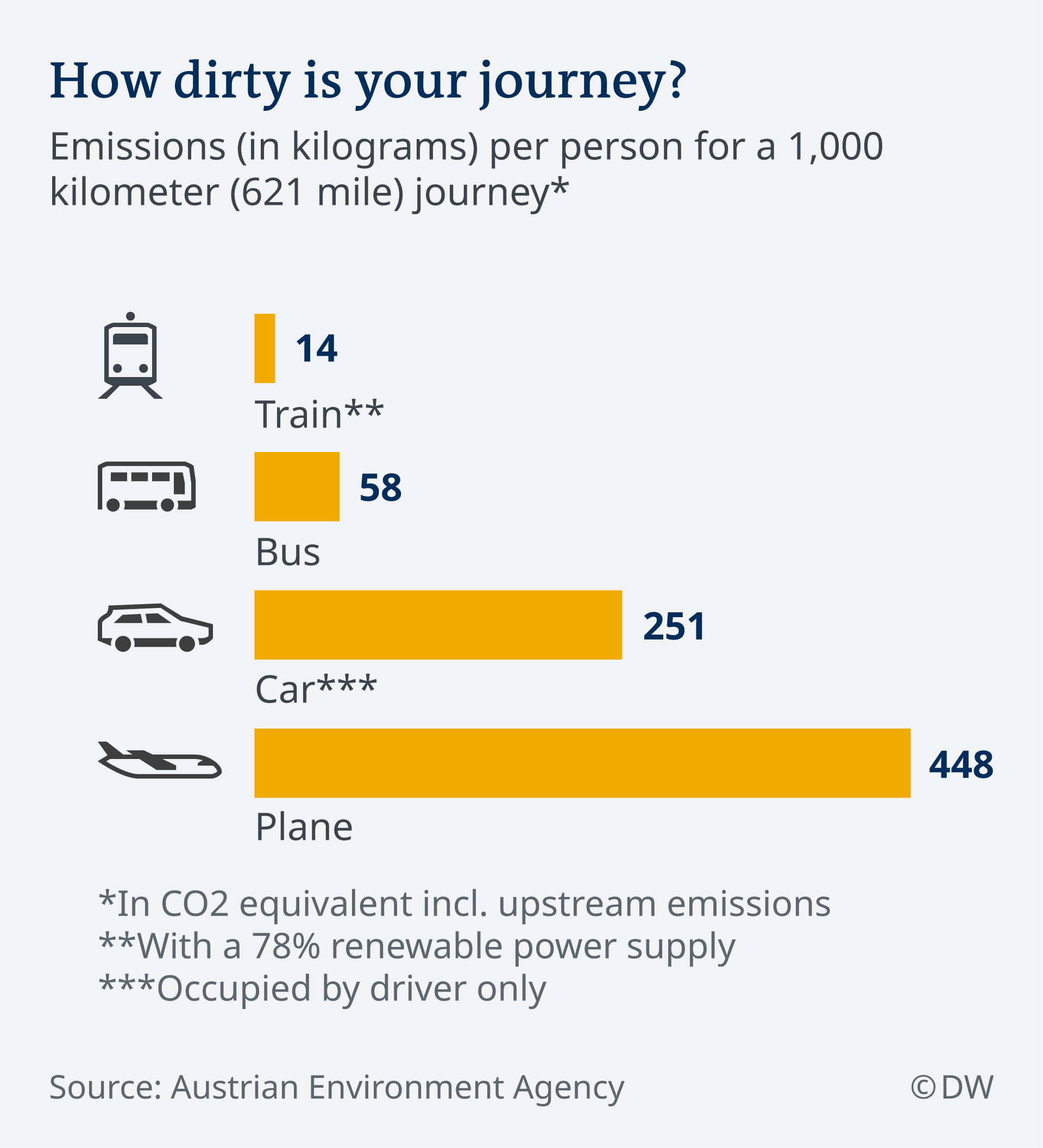

And unfortunately, travel is increasing just as our cap to be able to control climate change is coming to a close.
More and more people are flying each year, as it becomes more and more accessible. This is wonderful in terms of tourism standards, but pretty bleak for the environment.
Here are some things to consider when booking your next flight for sustainability:
- Look up how old the aircrafts are that are being used – newer plane models are created to be more efficient & reduce fuel usage
- Do you know if they recycle their flight items, such as pillows & blankets?
- Do you know if they recycle on the aircraft at all?
- Is the airline dedicated to reducing their carbon footprint?
You can also offset your carbon footprint for your flights. This basically means that you donate money to an organization that delivers sustainable tactics to help offset the carbon that your travel emitted. Wow, that was a mouthful!
For example, if your flight is 20,000 miles in distance, as one single passenger you will have emitted about $20 worth of carbon dioxide. If you donate that $20 to an organization that, for example, plants trees, then you are offsetting the damage your carbon footprint has left behind.
You can find a list of carbon offsetting sites here, just scroll to the bottom of the page.
Here are a few other travel tips for Flying Sustainably:
- Book a direct flight; even if it means sacrificing a few extra airline miles. It’s better for the environment as planes produce most of their carbon emissions during take off and landing of a flight.
- See if it’s possible to take a train to your destination
- Pack your own food for the flight & avoid using the airlines provided plastic cups and cutlery
- Respond to airlines review emails after a flight & make suggestions for discontinuing plastic use on their planes
How to find & choose environmentally friendly accomodations
Thankfully & surprisingly, ‘eco’ lodging does not mean roughing it outside on a hammock made out of bamboo. It means that the place you are paying to stay in supports and actively follows through with sustainable tactics.
This could mean something as small as not having plastic bottles of shampoo & conditioner in each room, to having sustainably made furniture throughout the property, to donating money to local charities. There are a variety of things that any hotel, lodge or resort can do to be environmentally friendly.
Here are things to keep an eye out for when looking to book environmentally friendly accomodations for your travels:
-
How do they treat the local community?
-
Do they specify any details on how they’re sustainable? *Any business using sustainable tactics will proudly promote it on their website
-
Do they mention a food composting program or recycling program?
Tips for Eco-Travelers in their lodging
Even if your lodging choice is not an eco-friendly one, there are things that as an individual you can do to help create a more sustainable atmosphere:
- Turn off the lights before you leave your room
- Don’t have all of the lights on in every room
- Turn your thermostat down a few degrees
- Reuse your towels, instead of requesting new ones each day
- Conserve your water usage
- Utilize their recycling bins in the rooms
- Respond to their survey asking for more sustainable methods to be put into place
You can search for eco-travel lodging on these sites:
Green Getaways – Australia
Being green in your destination
Eco-travel has so many different facets to it, which is what makes it such a simple thing to slowly transition to. We’ve discussed what to pack, how to choose your flight and lodging, so now let’s review what you can do while in your destination.
- Take public transportation
- Walk
- Bring your own cloth bag for any souvenirs you buy or food you bring back to your lodging. Did you know that plastic bags take up to 500 YEARS to biodegrade… I’d rather my memories lasted years, but not that long.
- Or better yet, just say NO to plastic
- If you want to book a tour, do it with a small group that follows environmentally responsible operations
You can find eco tours by searching your destination with eco tours [example: google search, San Diego eco tours]


- Reuse items like cups, bottle & containers
- Bring your own reusable containers for food leftover at meals
- Ever seen the hashtag #take3forthesea ? There is garbage all over the place, and while you don’t want to be picking up trash your entire trip, aim to pick up three items a day and place them in the correct bins
- Eat plant based for two out of three meals
- Be aware of animal tourism; don’t pay to feed tigers, ride elephants or ignore a street cat or dog.
Eco Travel Phrases to use
Part of being an eco-traveler is respecting the destination that you are visiting. If you’re traveling to a location where a different language is spoken from your own, then be a respectable traveler and learn these commonly used sustainable travel phrases:
Can I please take a photo?
I do not want a straw
I have my own bag to use
Do you recycle?
Please
Thank you
Where is your garbage bin?
No plastic, thank you
Small decisions on every trip you take are the start to making a lasting impact. In no way is it a sacrifice on your end. In fact, you may find that you feel like you’re gaining more in return than you are sacrificing anything.
I would LOVE to hear more about how you’re becoming a sustainable traveler – share your ideas below and I’ll reply back to you!
Pin me for Later!





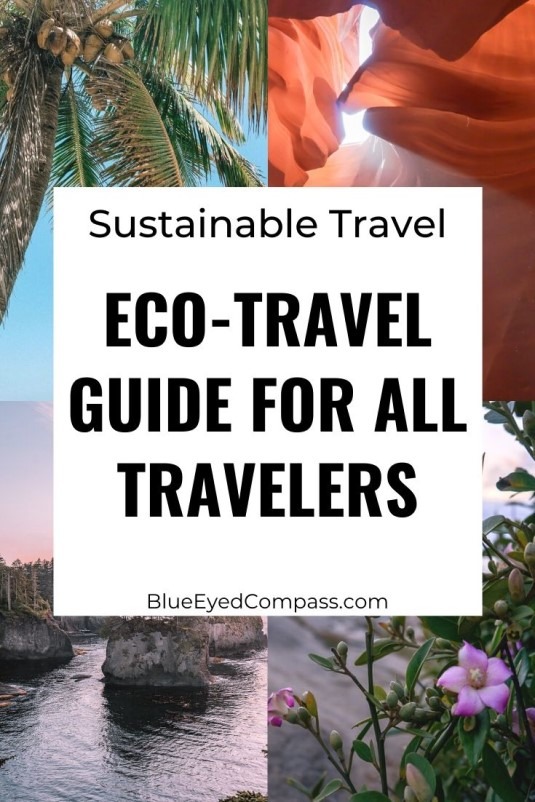



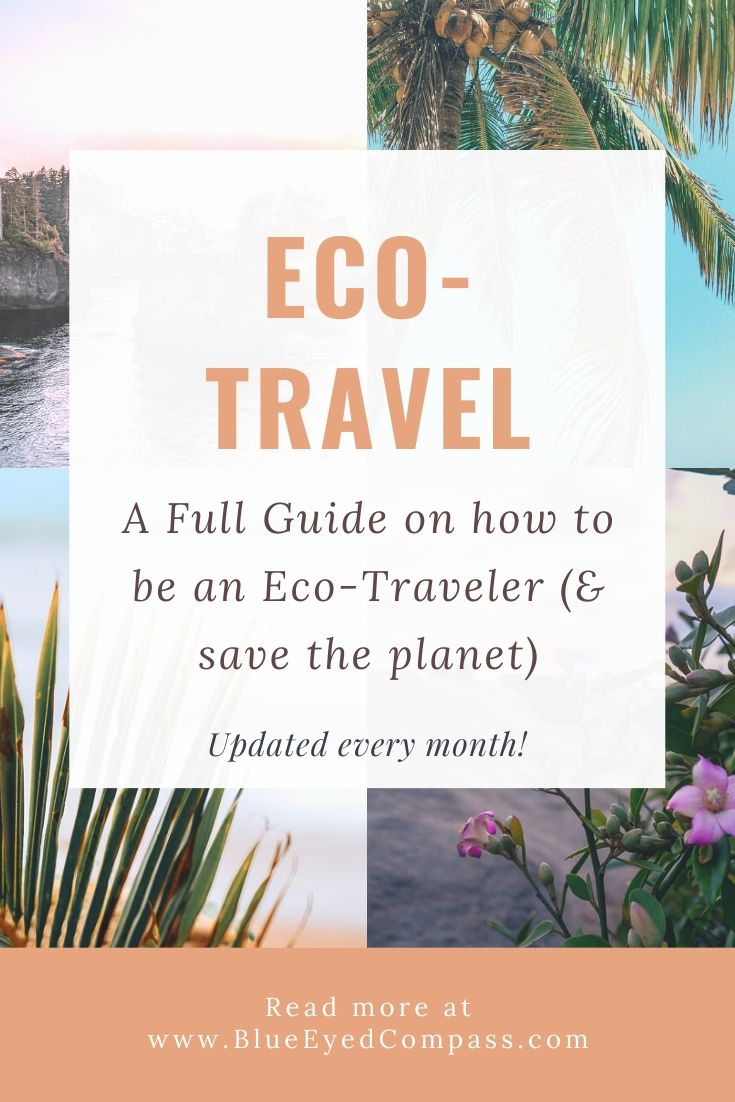

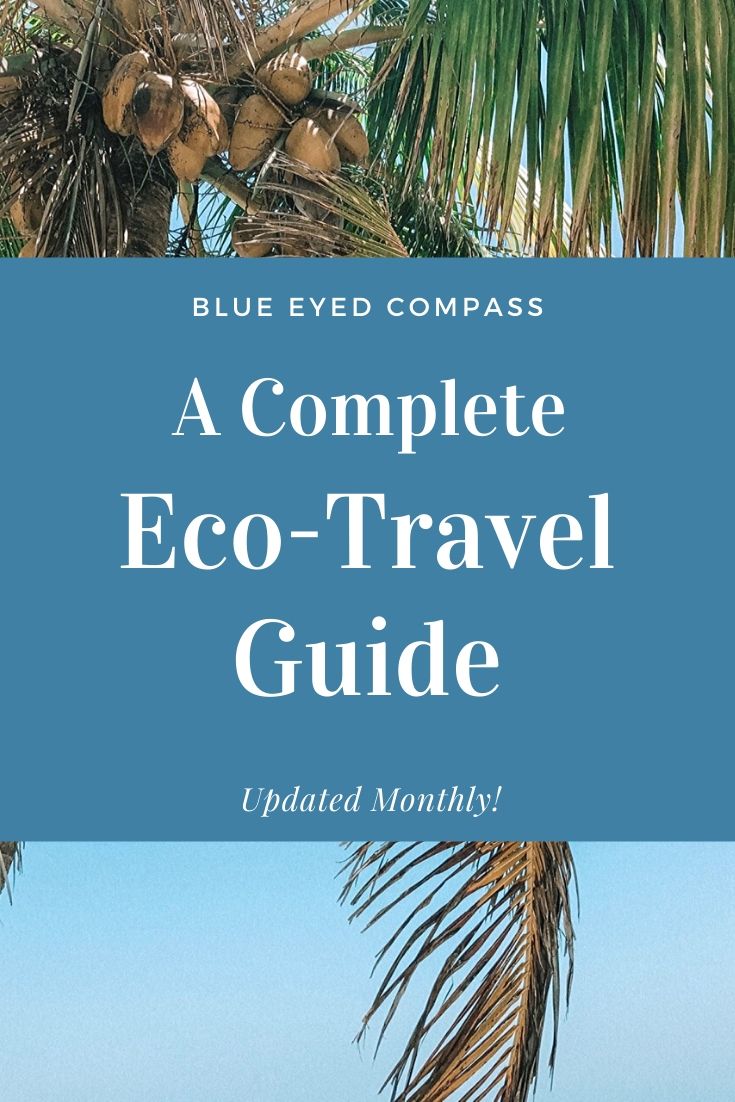

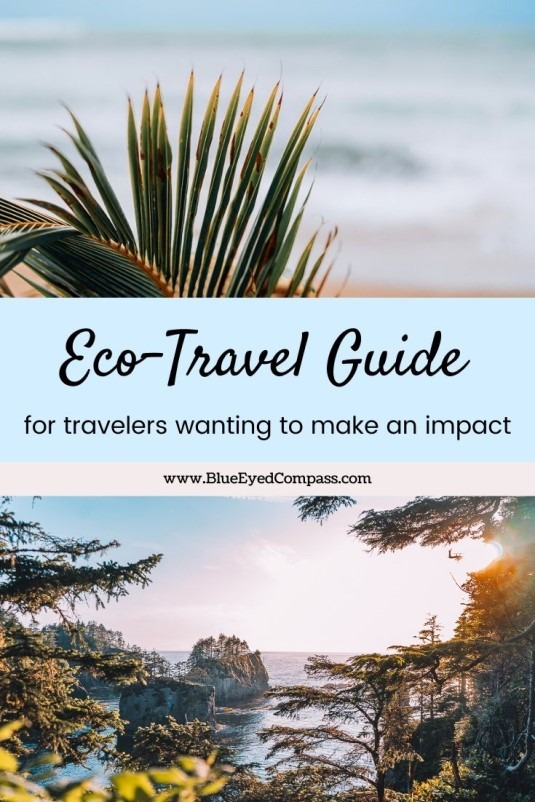

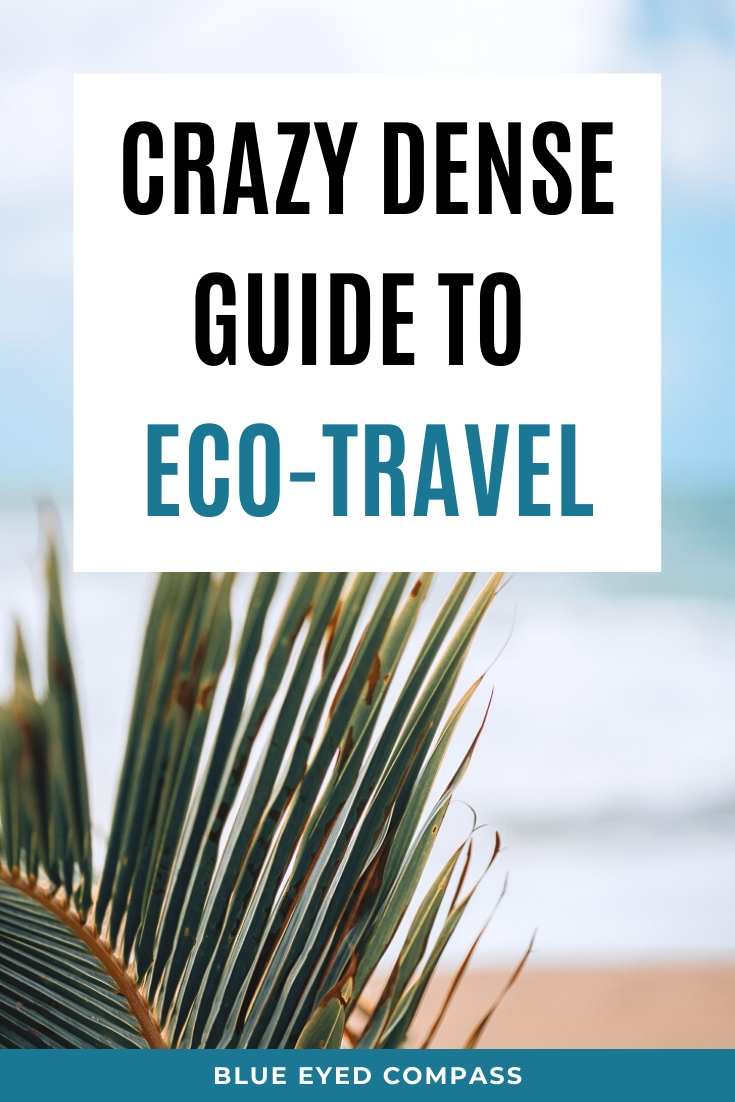

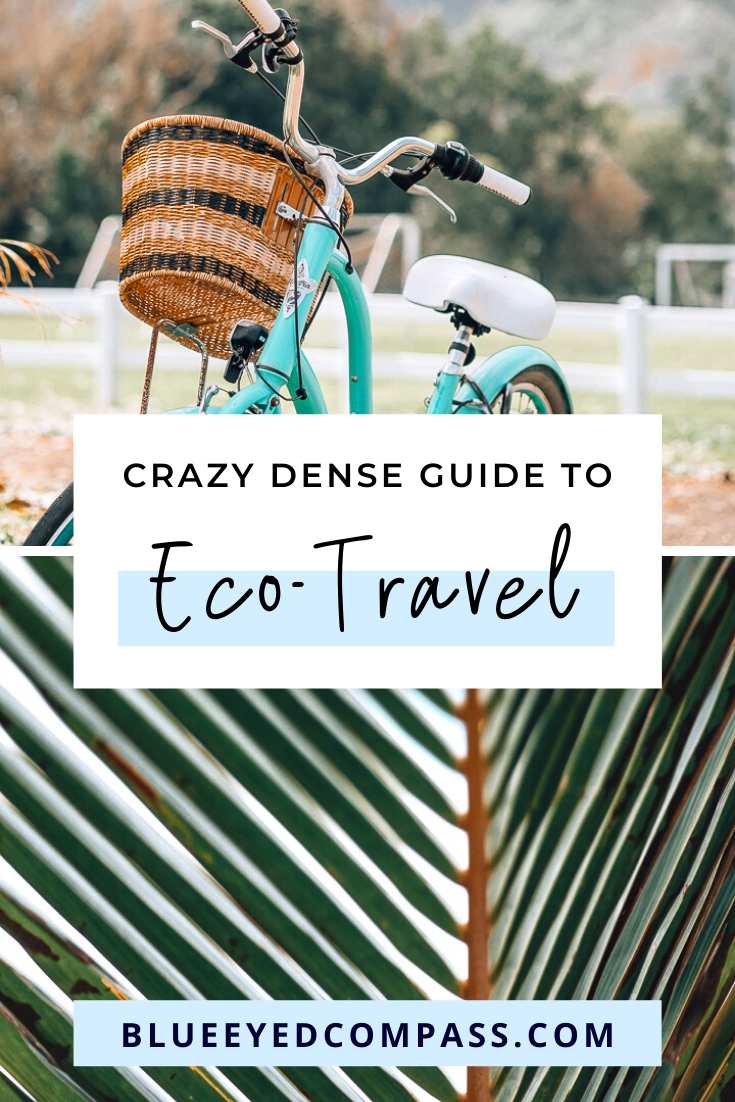

Follow Along




